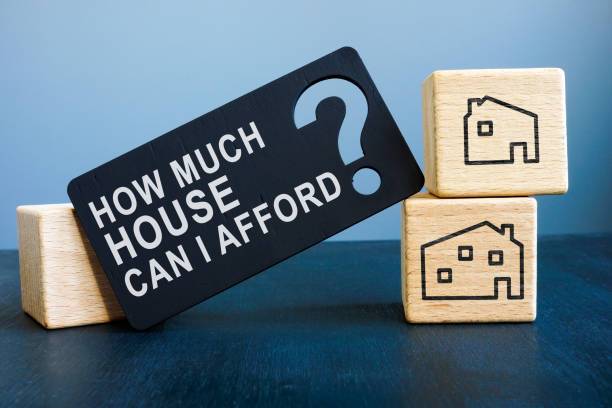Denied mortgage renewal: What happens next?
Denied Mortgage Renewal:What happens next? If you want to keep paying down your mortgage after the current term ends, you’ll need to renew it. You will have to repeat this procedure several times before your mortgage is paid off. Lenders typically issue renewal offers a few months before a term ends. A new mortgage rate and a slip to sign and return will be included in the offer. The new rate and term length will match your present mortgage. This may be more convenient, but it doesn’t guarantee acceptance. The long-term costs can add up, so it’s best to look into other options when it’s time to renew your service. So, what happens if your application to renew your mortgage is denied? Don’t freak out right away; there are things you can do. If you have been denied a mortgage renewal, please follow these steps. The Reasons Your Mortgage Renewal Was Denied First, depending on who you’re dealing with, there are two potential reasons your mortgage renewal application could be rejected. Lender refuses to renew the loan The fact that your present lender doesn’t have to re-qualify you is a positive factor in remaining with them (for example, determine your debt service ratios and require you to pass the mortgage stress test). If you have been making your mortgage payments on time and haven’t missed any throughout your current term, your lender shouldn’t have any reason to refuse your renewal application. However, your lender will still look at your present financial circumstances to see if you have accumulated more debt than it thinks you can afford to repay, if your credit score has taken a hit, or if your work situation has changed for the worse. Your present lender has the right to not renew you if it has any worries about your financial situation. Using our mortgage payment calculator is a great idea before your renewal date rolls around. Your mortgage renewal could be denied if you have a hard time seeing how you’ll be able to keep up with payments given the present interest rates. The new lender will not approve the renewal. You can try to renew your mortgage with a different lender if your present lender refuses to do so, or if you just wish to compare rates (you can contact a mortgage broker or mortgage agent to help you find a new lender). To make matters worse, switching lenders actually increases your likelihood of getting rejected for financing. This is because renewing your mortgage requires a fresh application. After reviewing the renewal slip provided by your current lender, the new lender will learn nothing about your financial status other than the outstanding balance of your mortgage. Therefore, it is necessary that you pass a mortgage stress test in addition to having your income and credit verified before it can approve your application. If you’ve been late on mortgage payments or otherwise ruined your credit, you may have a hard time getting approved by a new lender. In that situation, you may choose to stick with your present lender as it doesn’t have to re-qualify you. If you’re in the market for a new mortgage and have some time until your current one expires, check out our mortgage affordability calculator to get a sense of how much you might be able to borrow. Keep in mind that the best fixed and variable rates on the market today are both higher than 5.25%, so you should run that scenario when determining what you would be able to pay as a new applicant in order to pass the mortgage stress test. You can expect this information to be used by a potential new lender in making a decision about whether or not to extend you credit. Steps to Take If Your Renewal of Your Mortgage Is Refused If your application to renew your mortgage was rejected, what should you do now? Let’s imagine you tried to find a better deal by approaching a new lender, but were turned down. If you want to keep paying your mortgage, the first step is to talk to your lender about renewing your loan. For those who have been turned down by their present lender: In the event that your existing lender refuses to renew your mortgage, or if a new lender declines to do so, you will need to find another lender or pursue alternative options. If your mortgage renewal was declined by your existing lender, you have several choices, listed from best to worst. Locate a class B lender. Talk to B lenders about your position if your first mortgage was with an A lender like a bank or credit union. Institutional lenders with a B rating are often trust businesses or those who specialise in lending to those with poor credit. People with poorer credit scores and/or higher debt loads are more likely to receive a loan from them than they would be from a lender with a grade of A. Make contact with a private lender. Your chances of getting approved by any lender are slim if your credit score is below 620. A private lender is an option if this situation arises. This is not an ideal situation because private lenders typically offer the highest mortgage interest rates available. Put your house up for sale. You might have to sell your home if you can’t acquire a mortgage that works for your budget. Since you’ll have to sell your home and relocate quickly, this is the worst conceivable scenario. You might not have enough time to consummate the sale and renew your mortgage before the term ends. To get by, you may need to get a short-term or open mortgage, whether from a B lender or a private lender. Related posts 21 January 2023 Denied mortgage renewal: What happens next? Denied Mortgage Renewal:What happens next? If you want to keep paying down your mortgage after the current… 19 January 2023 Canada’s Bank Regulator Wants Tighter Real
Denied mortgage renewal: What happens next? Read More »













